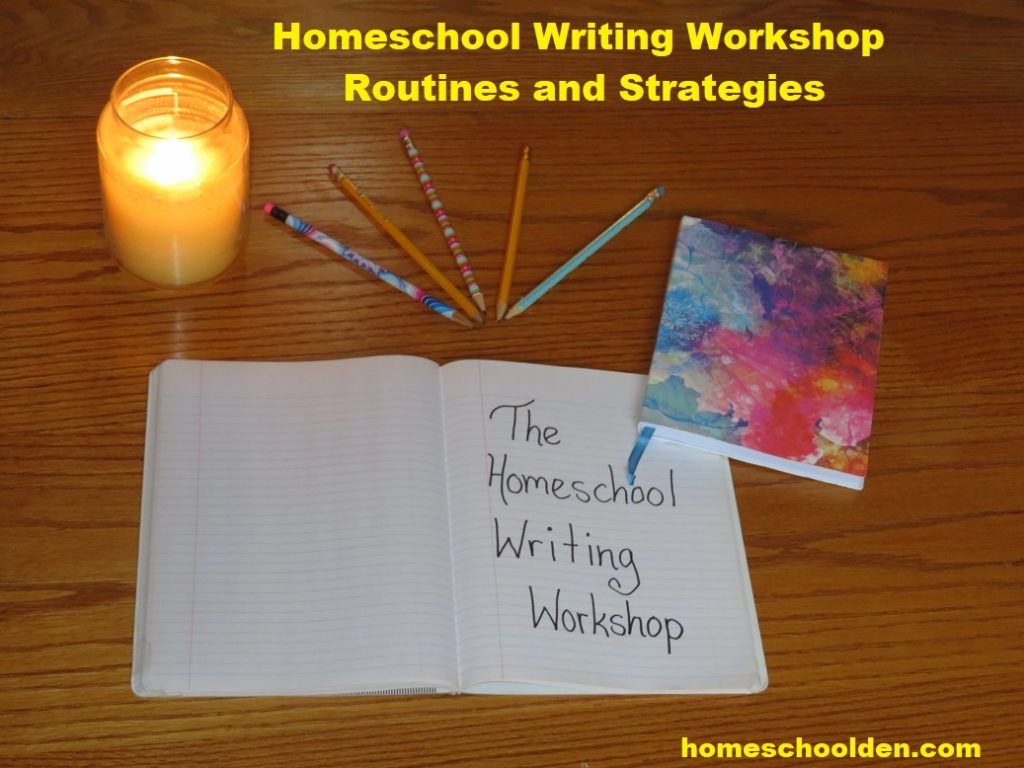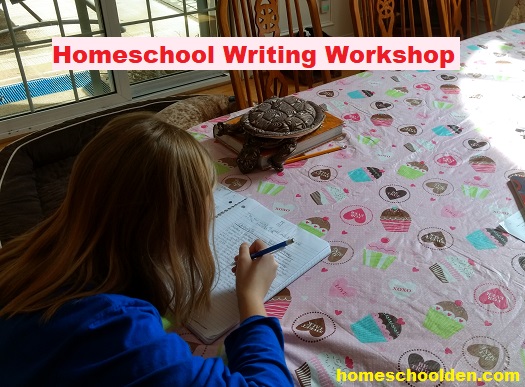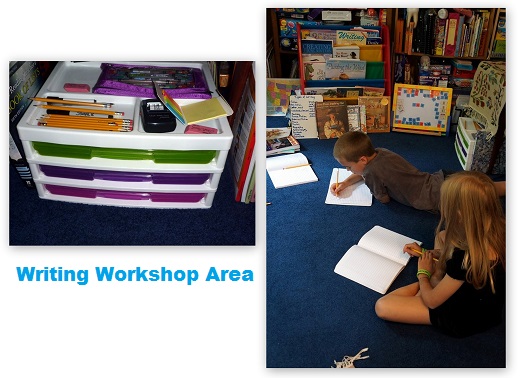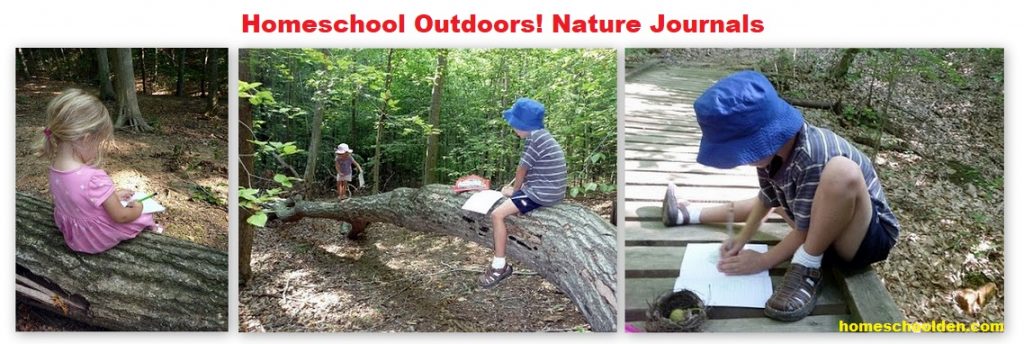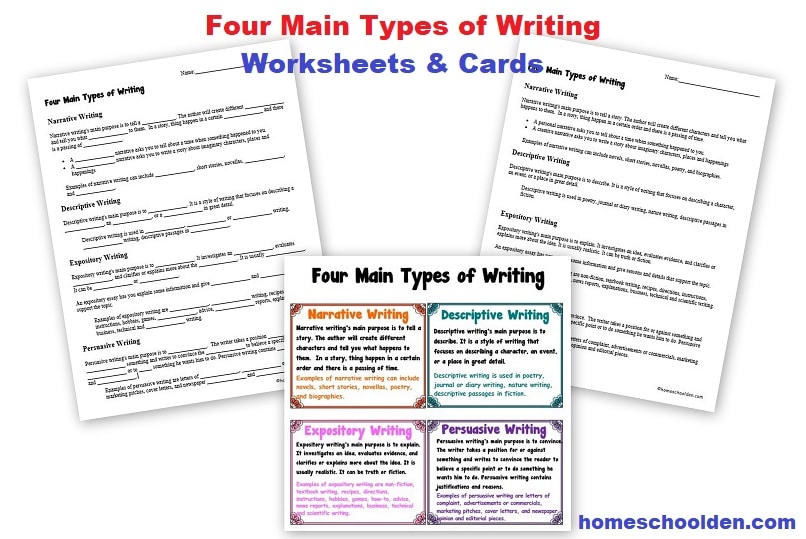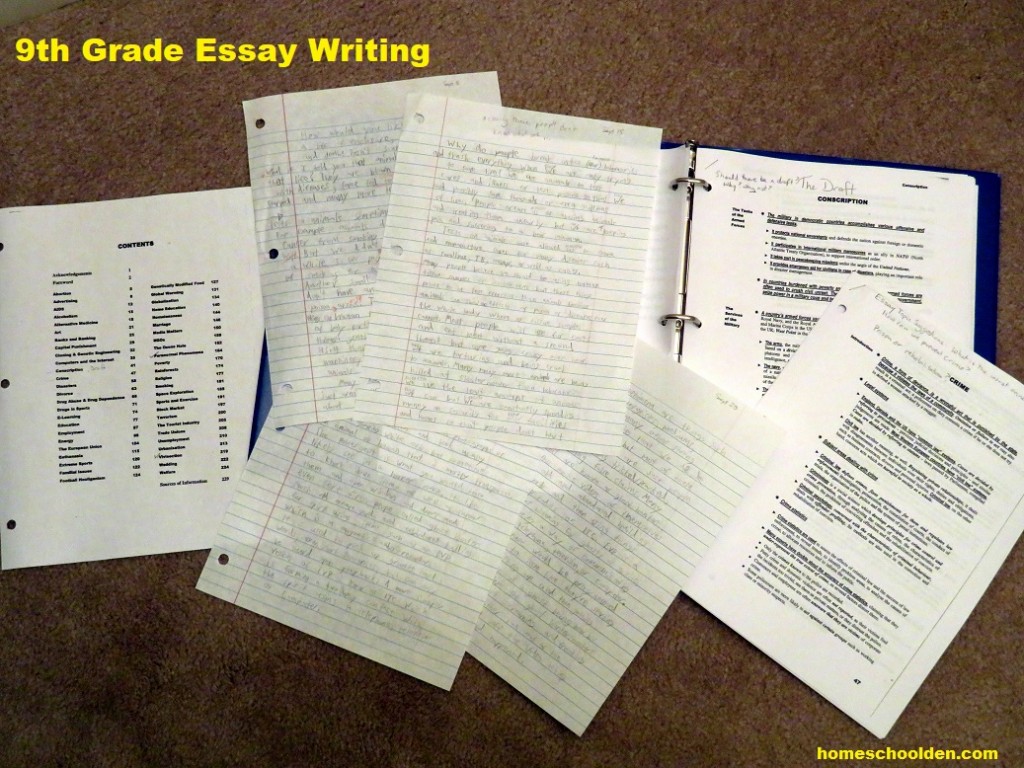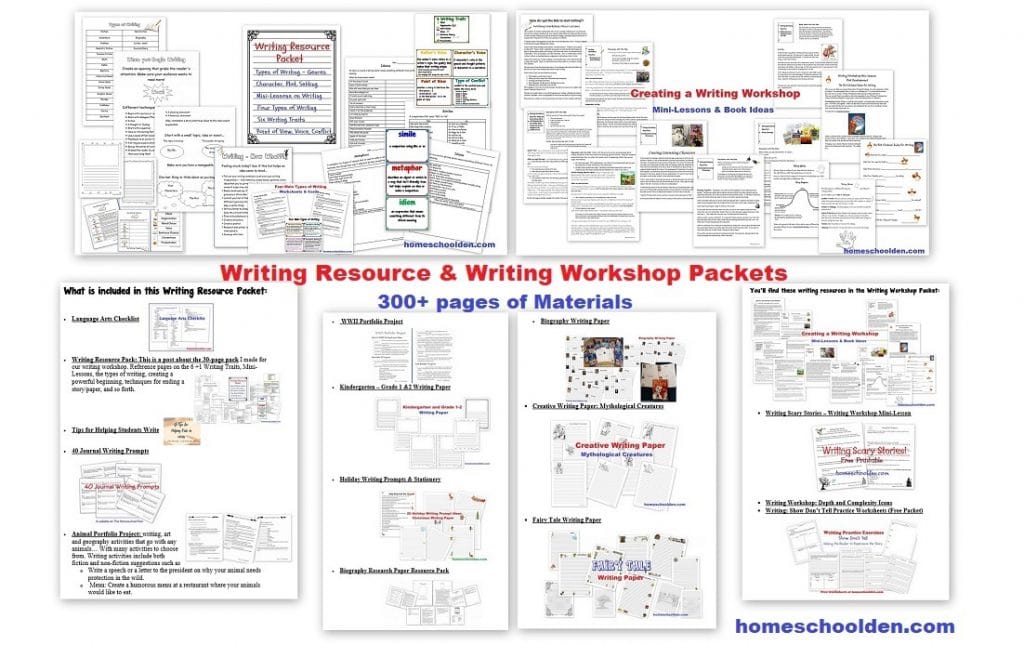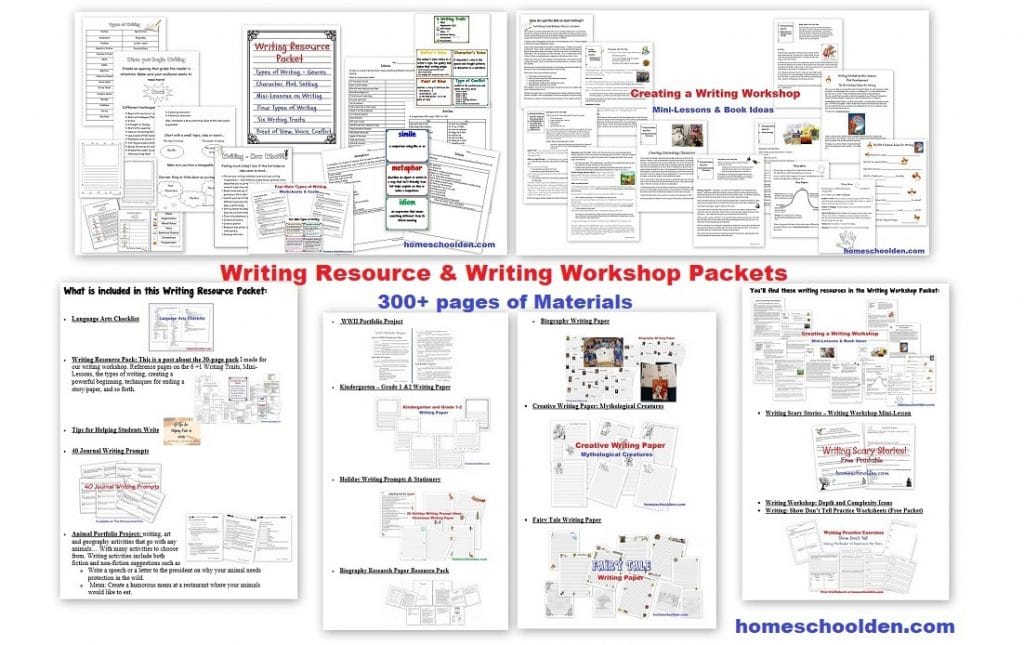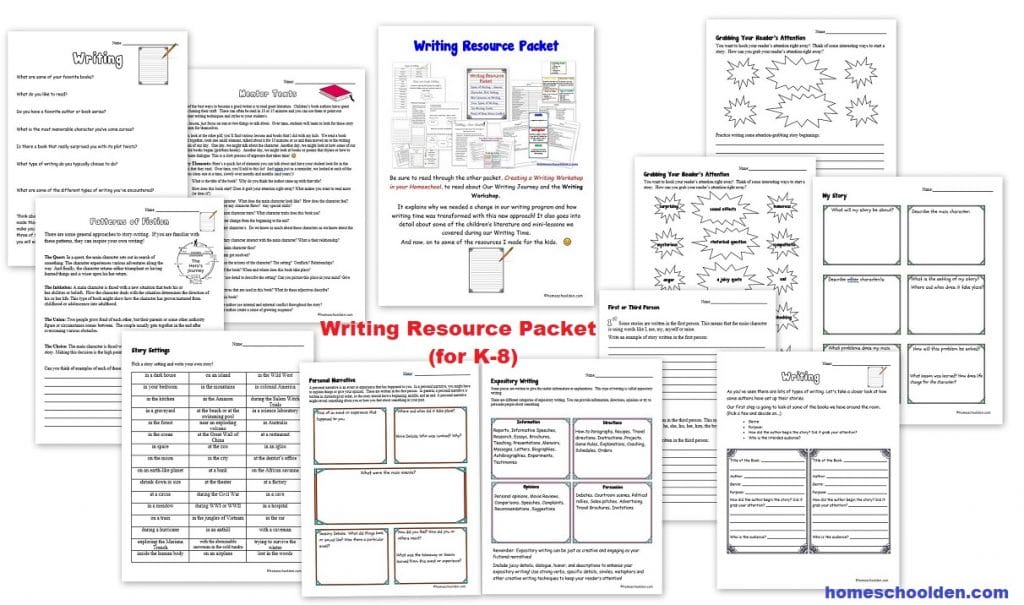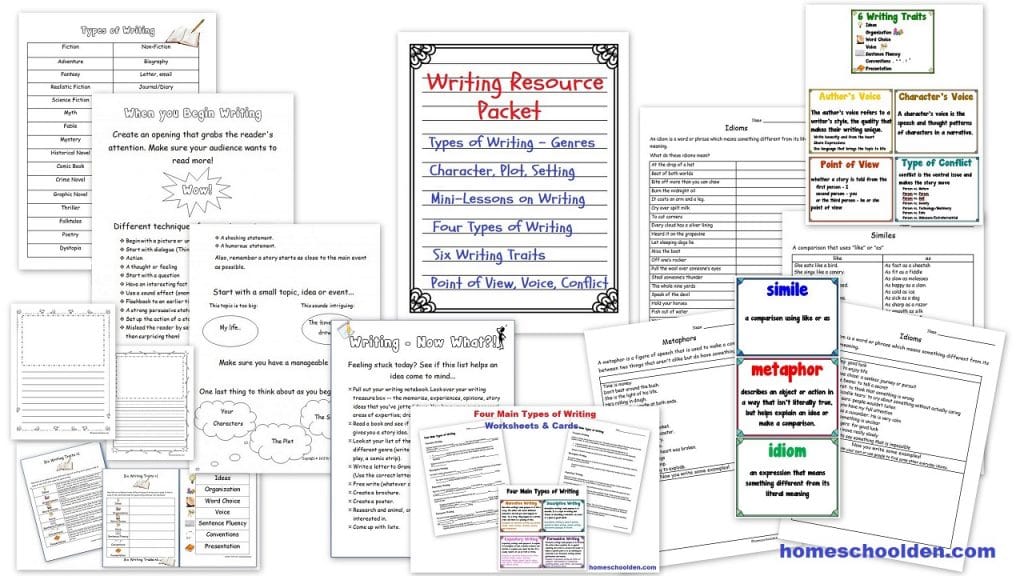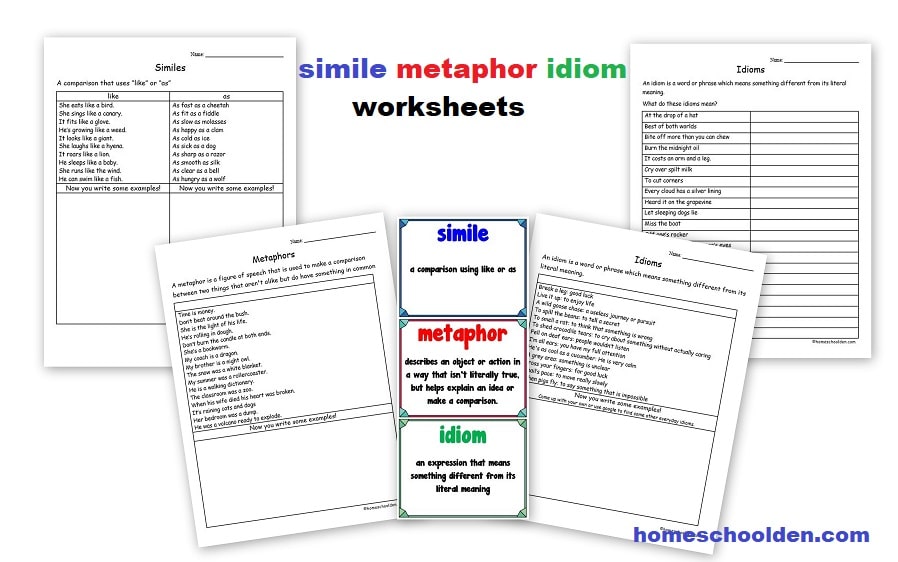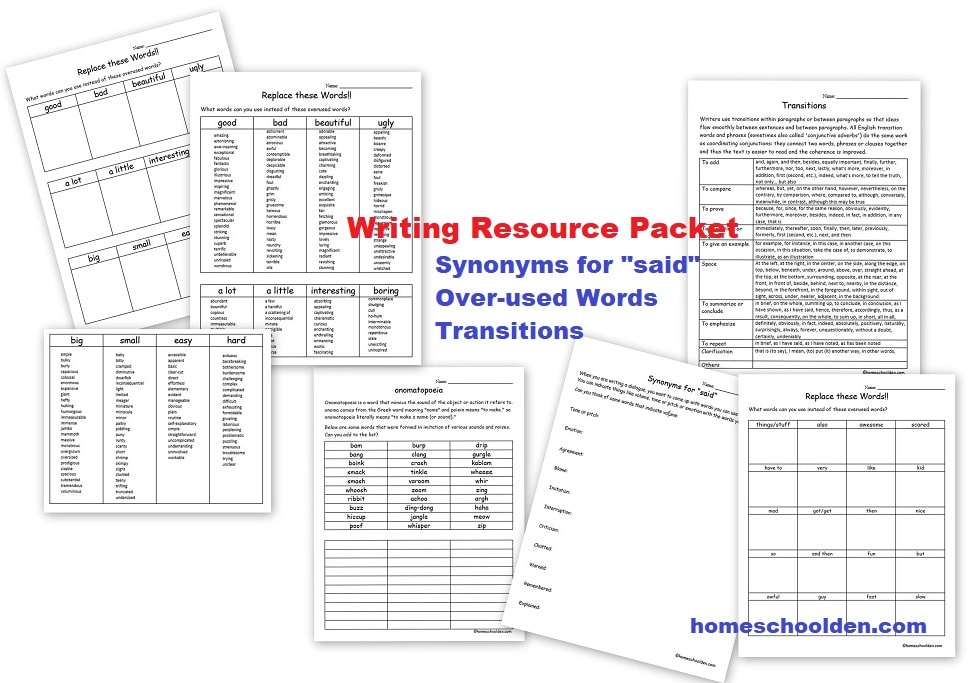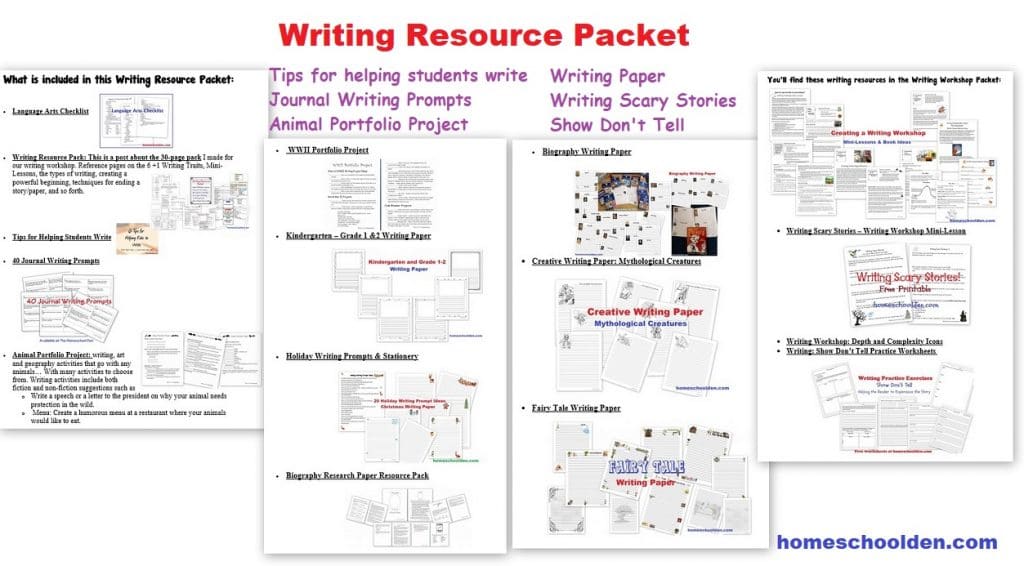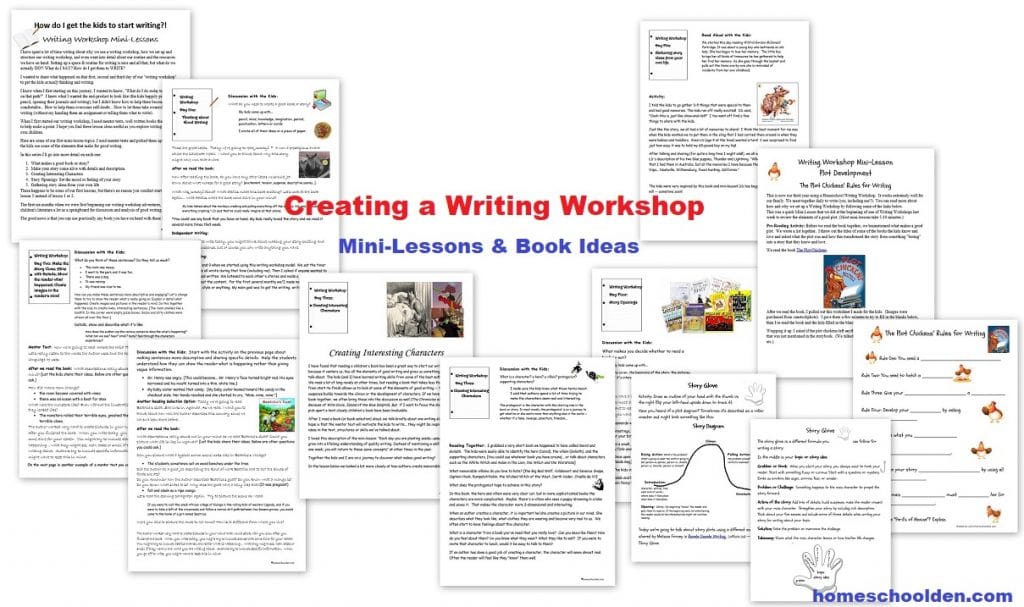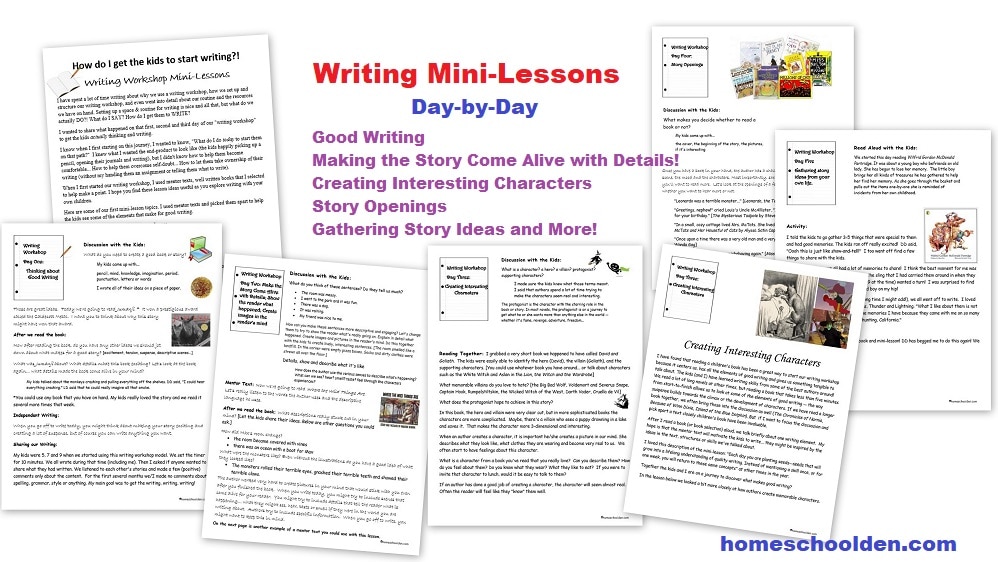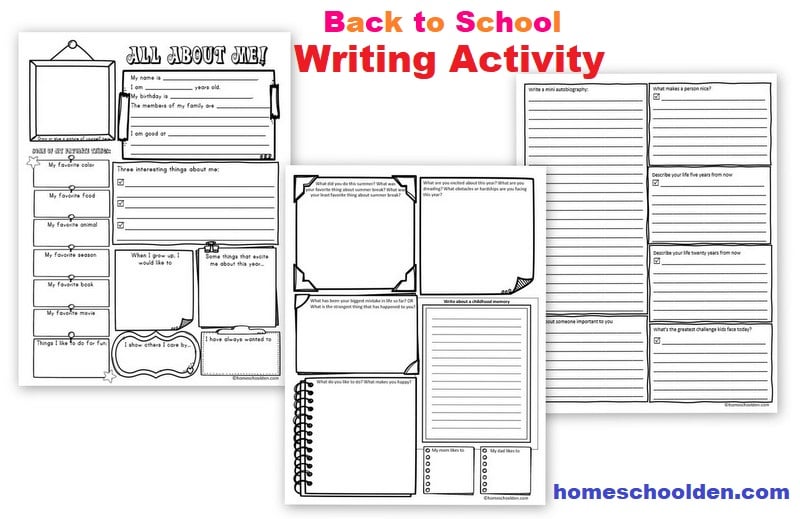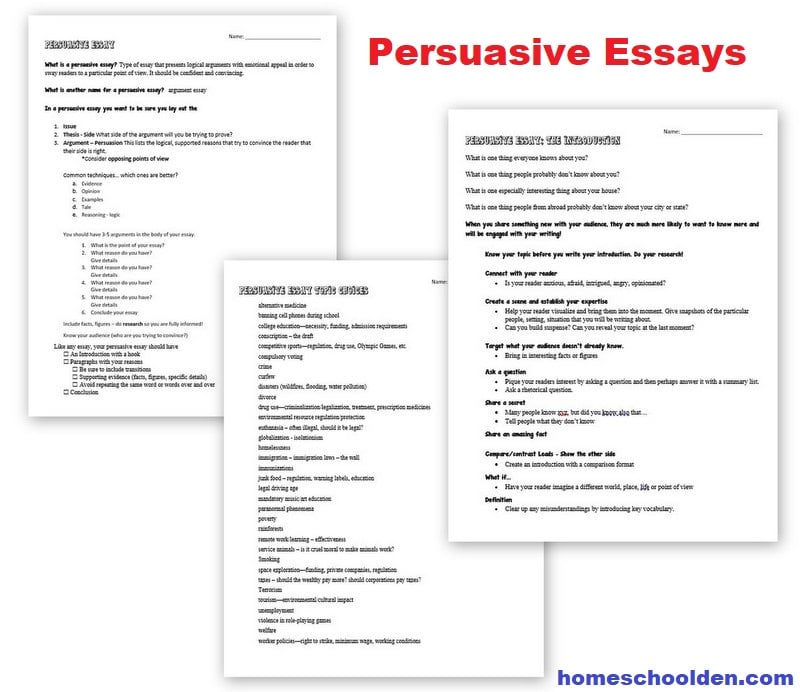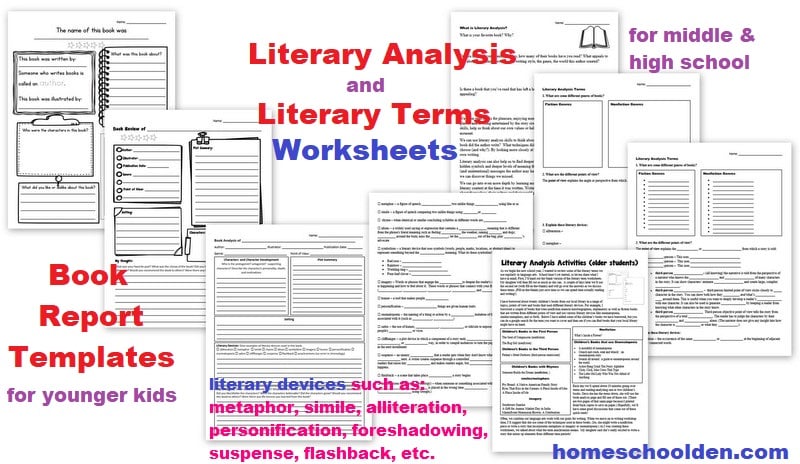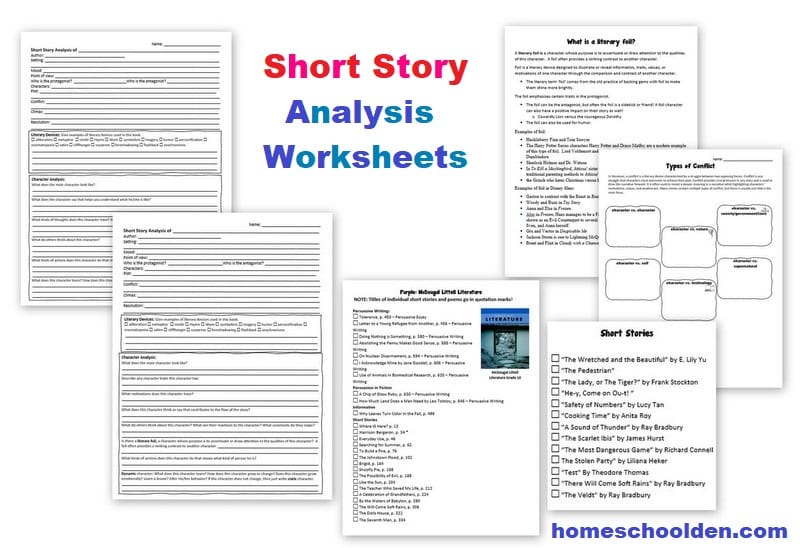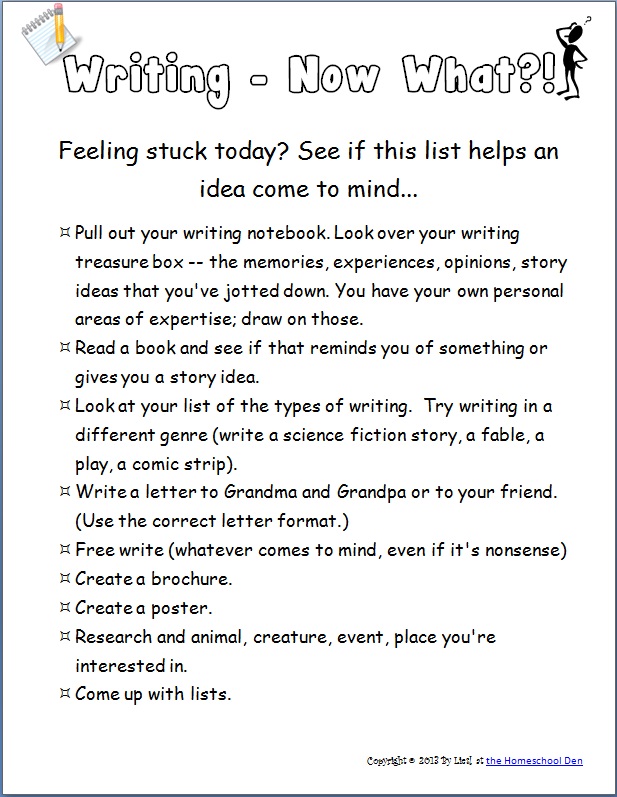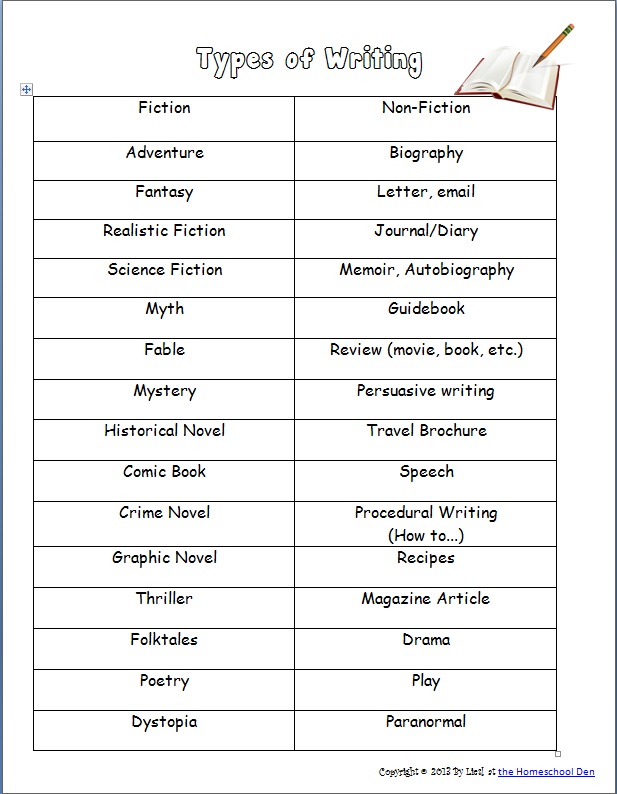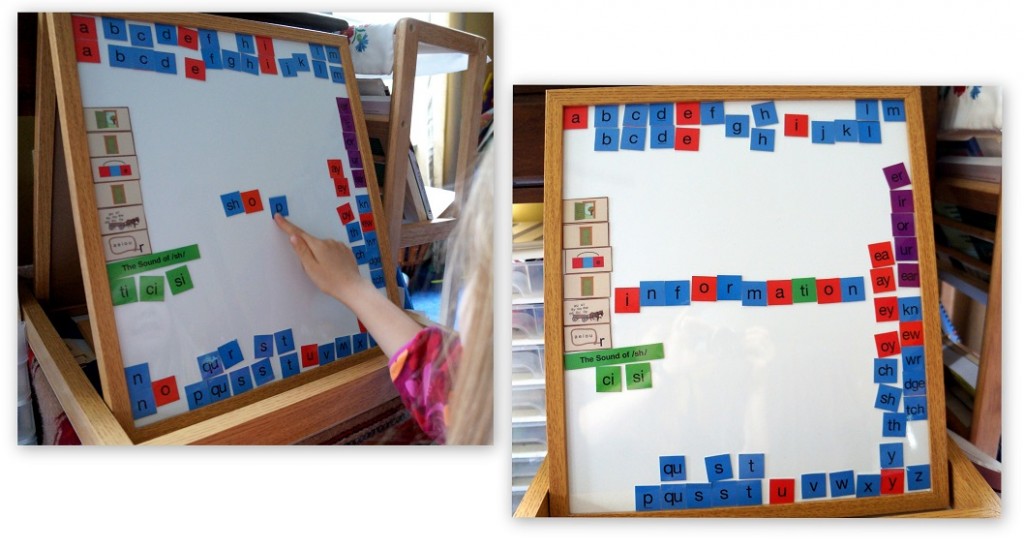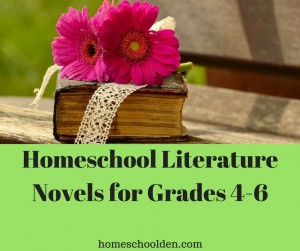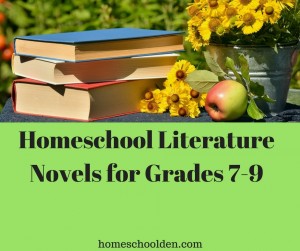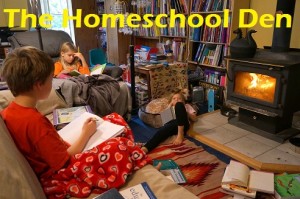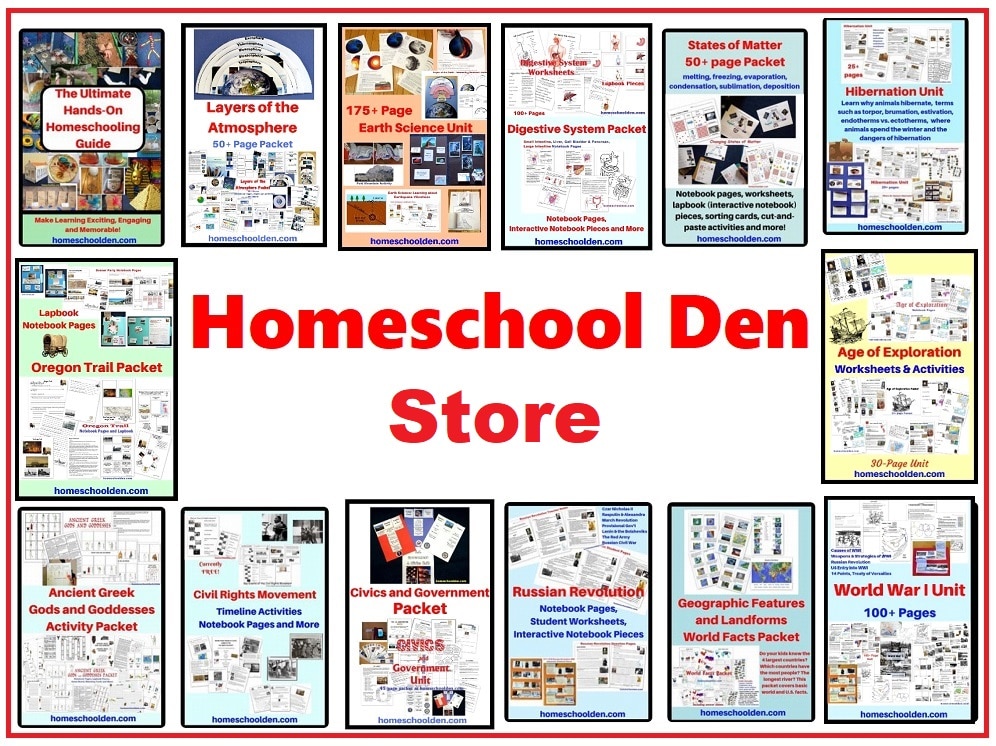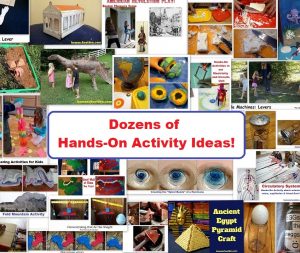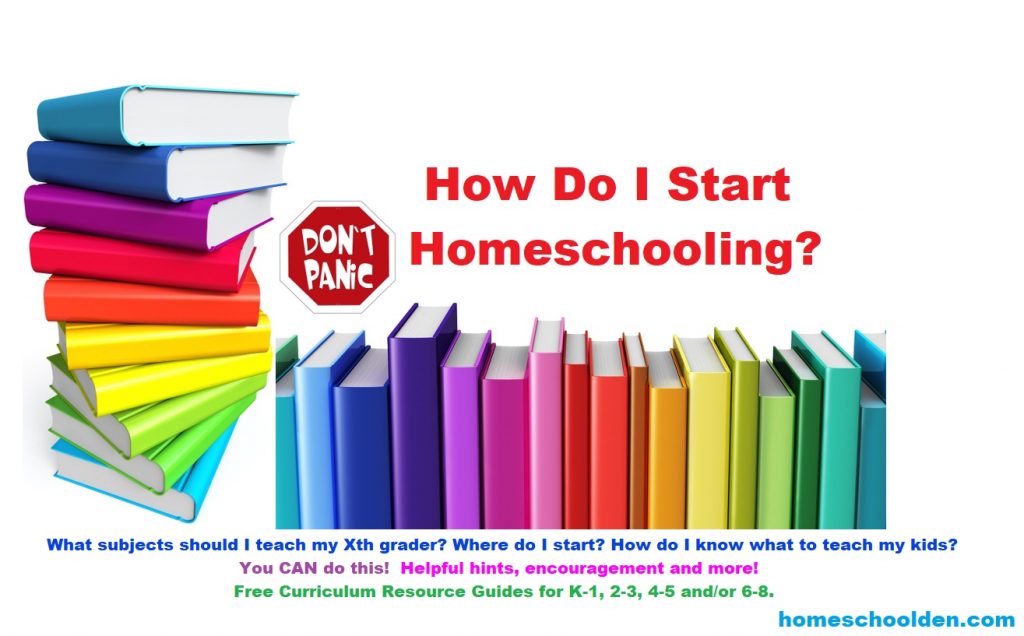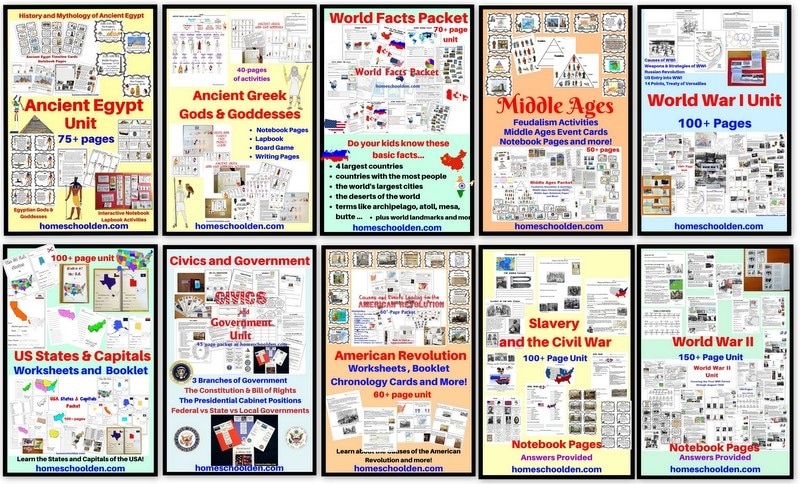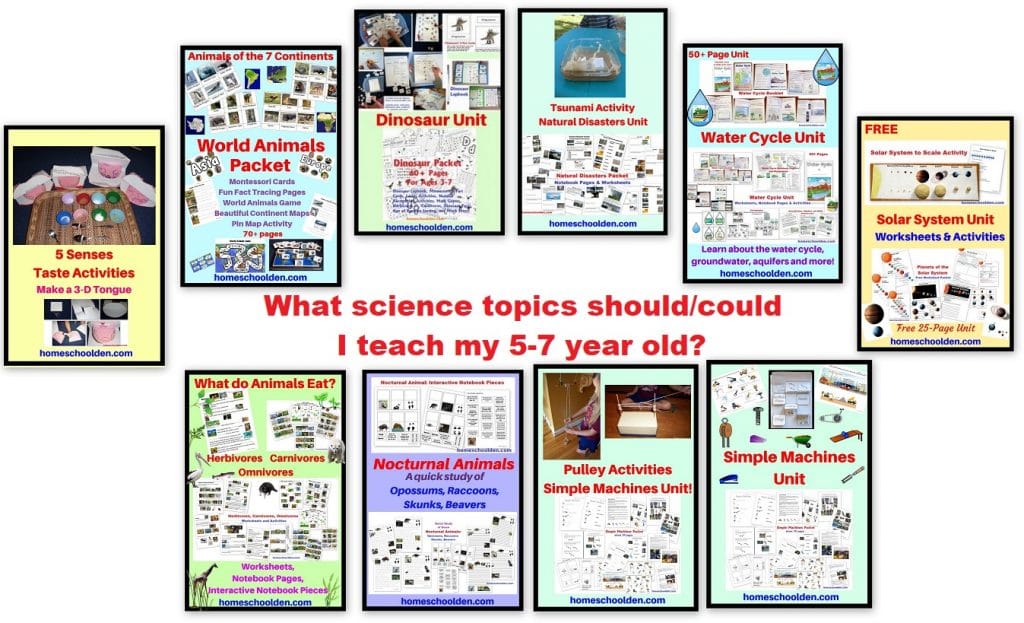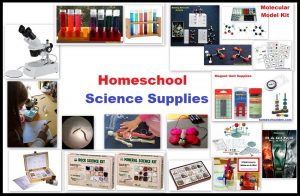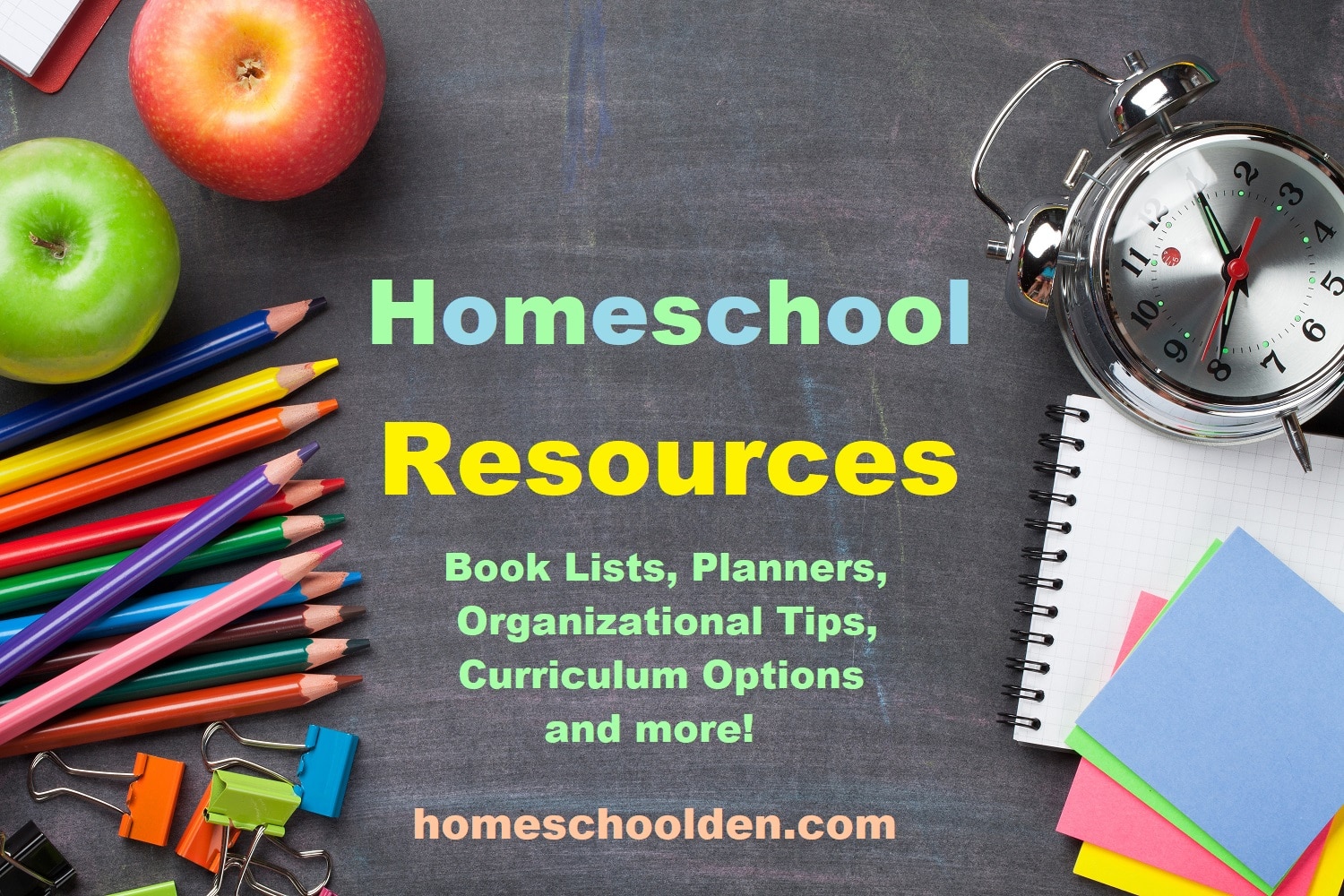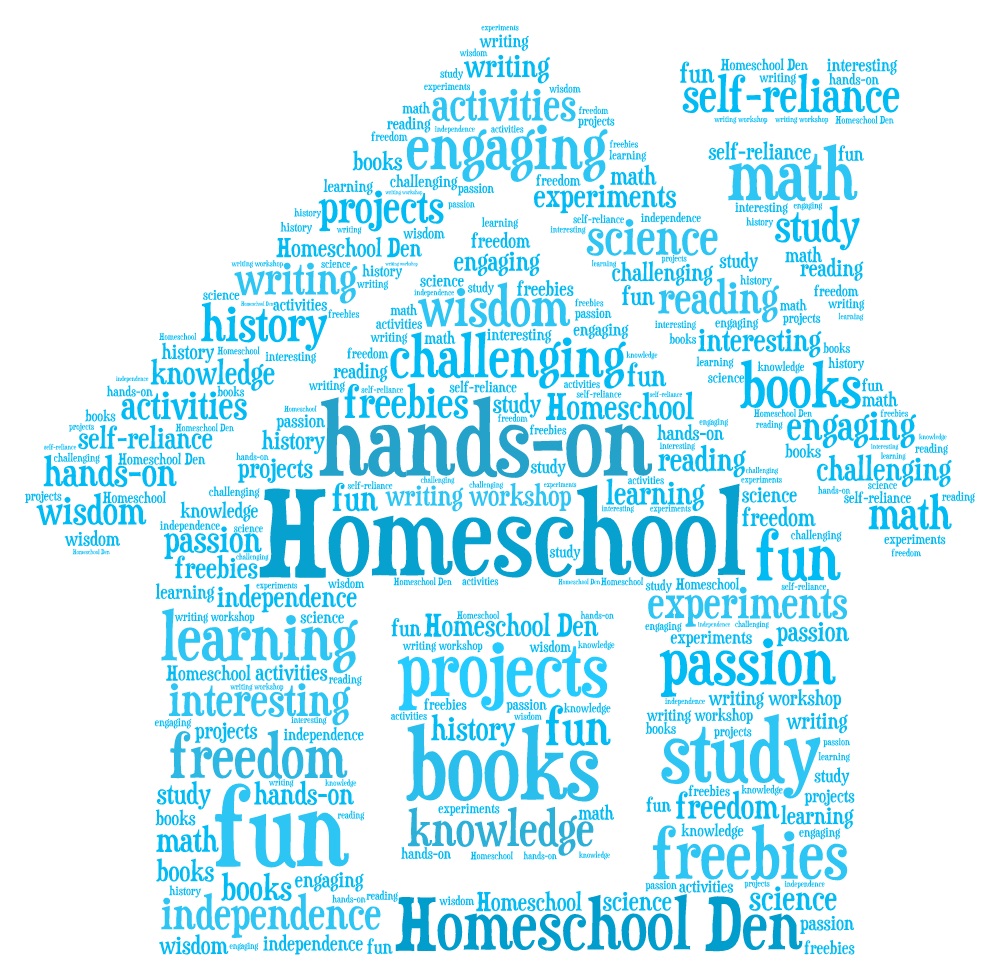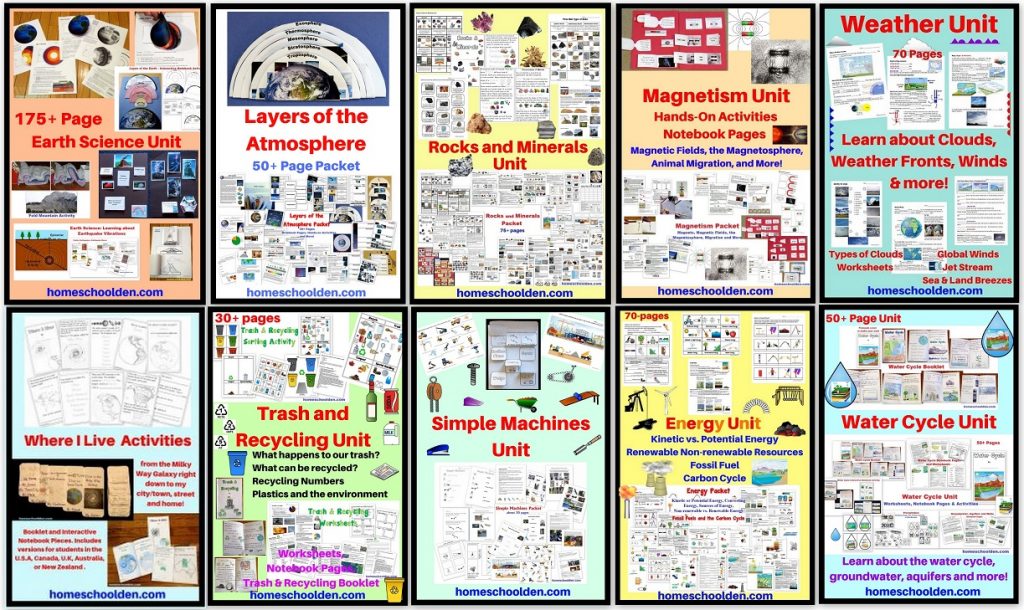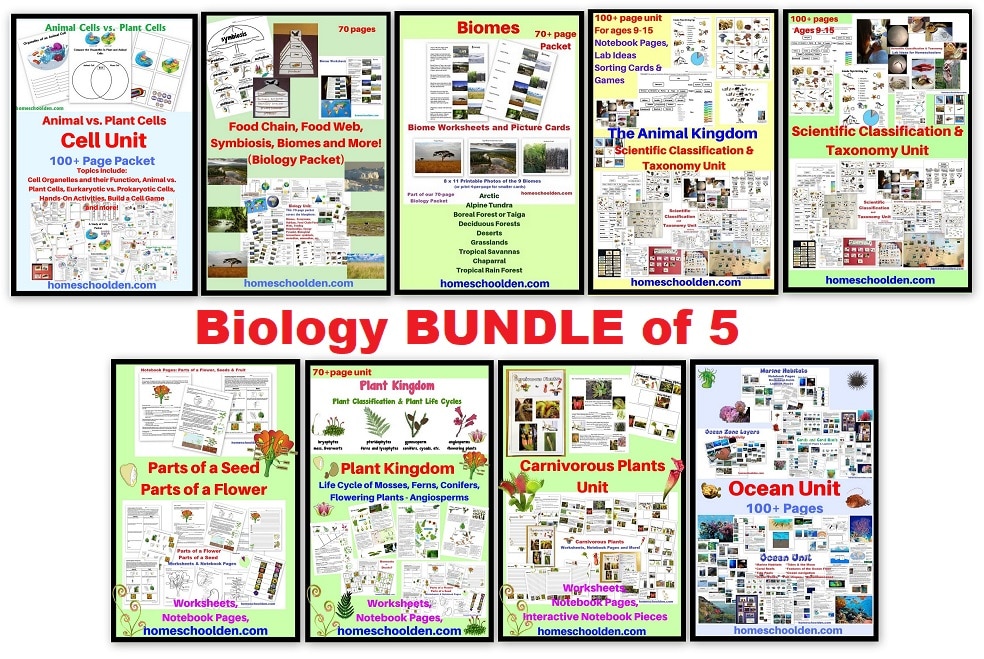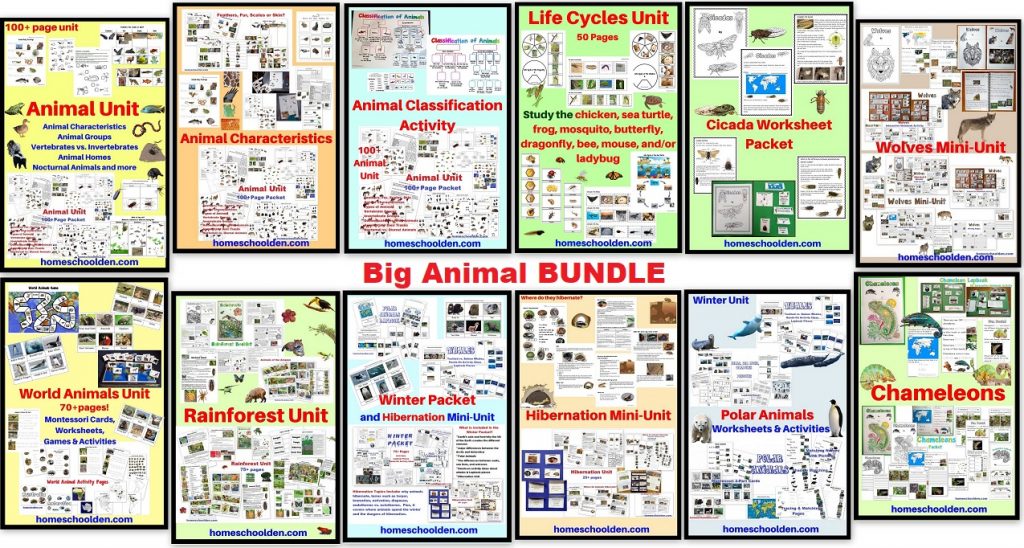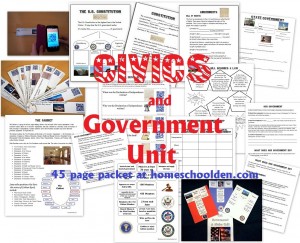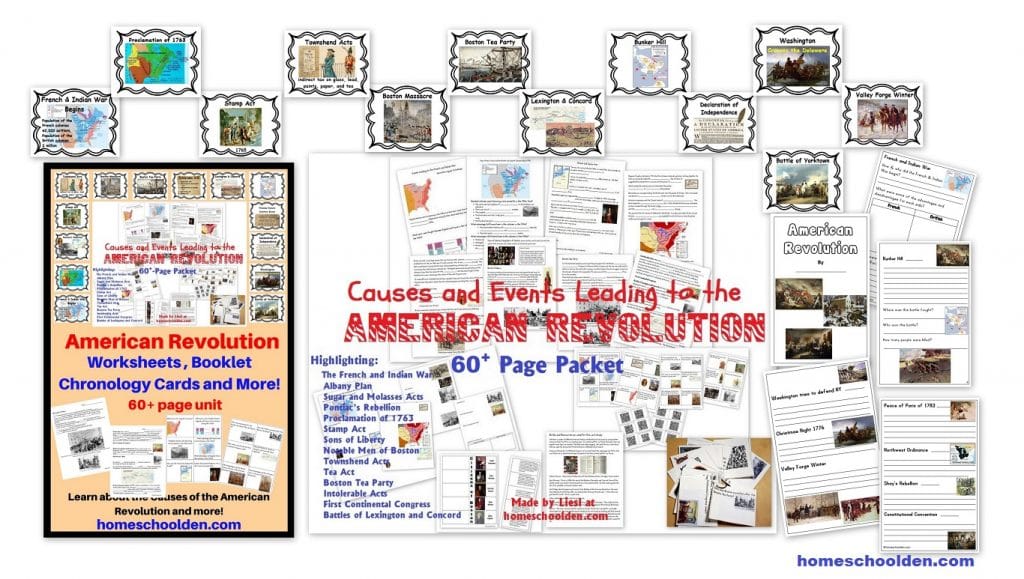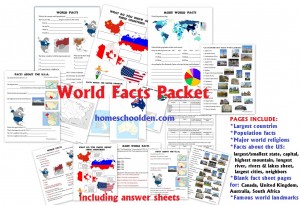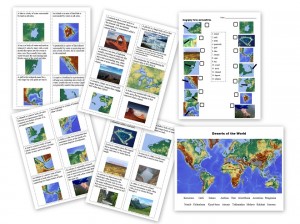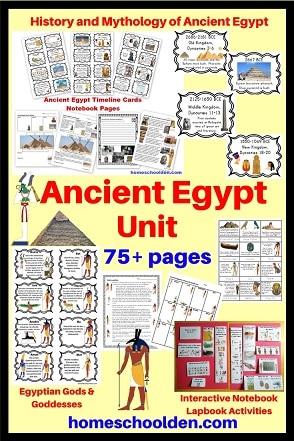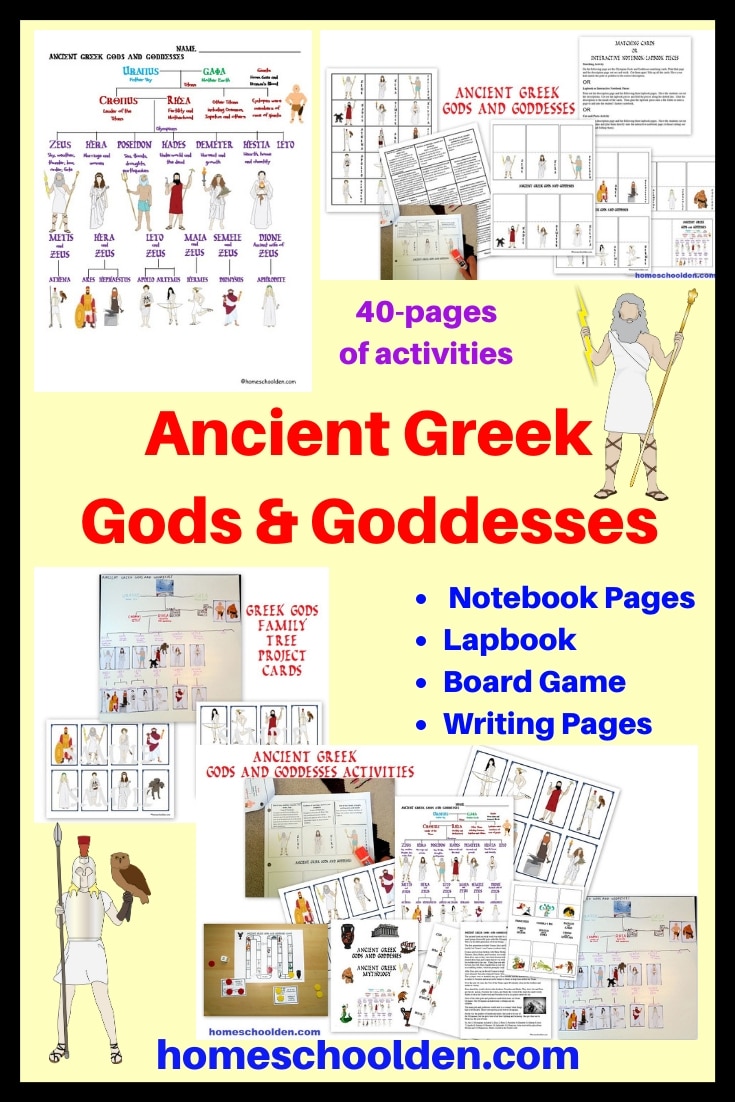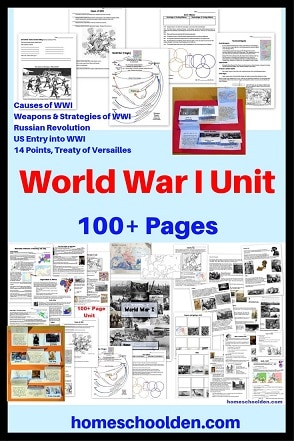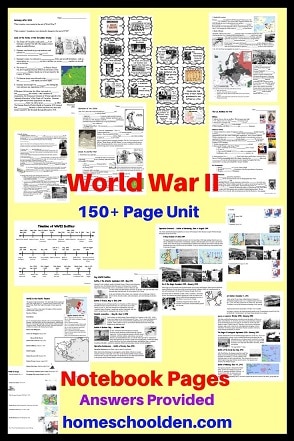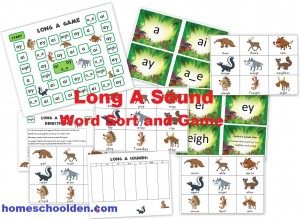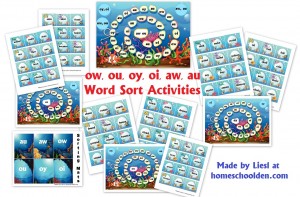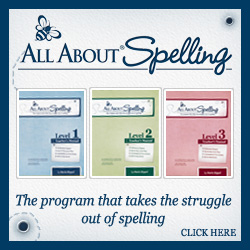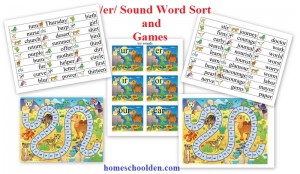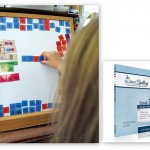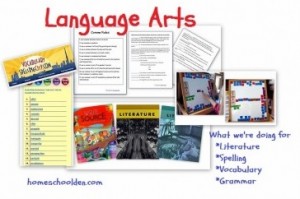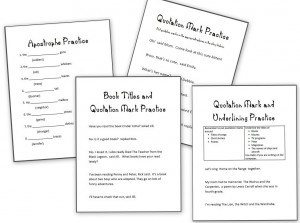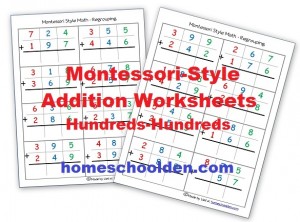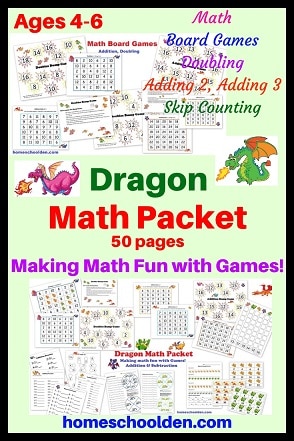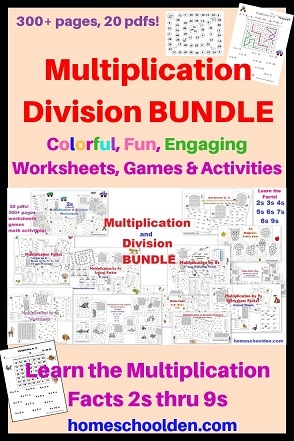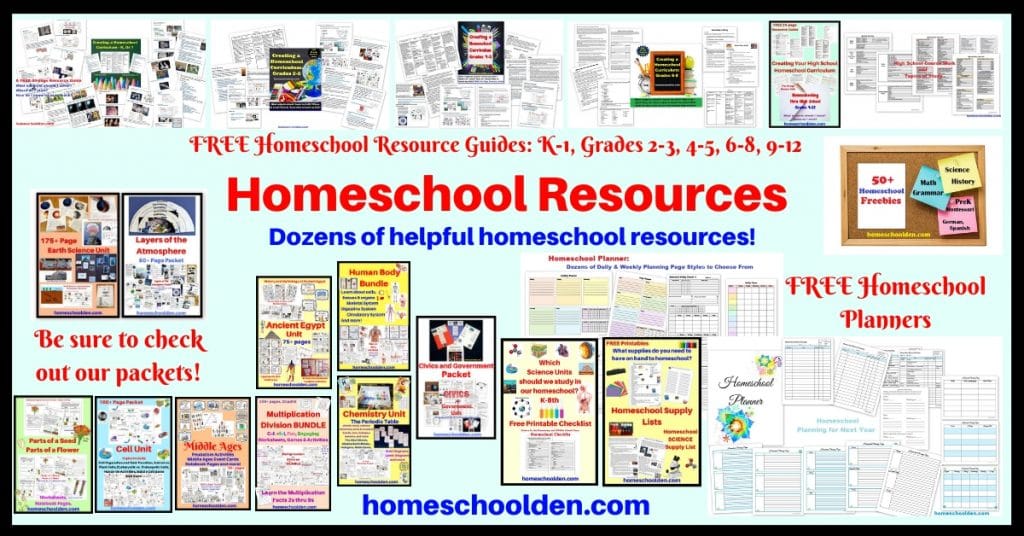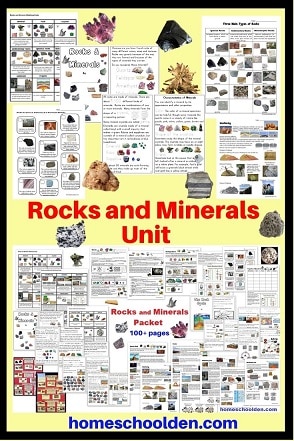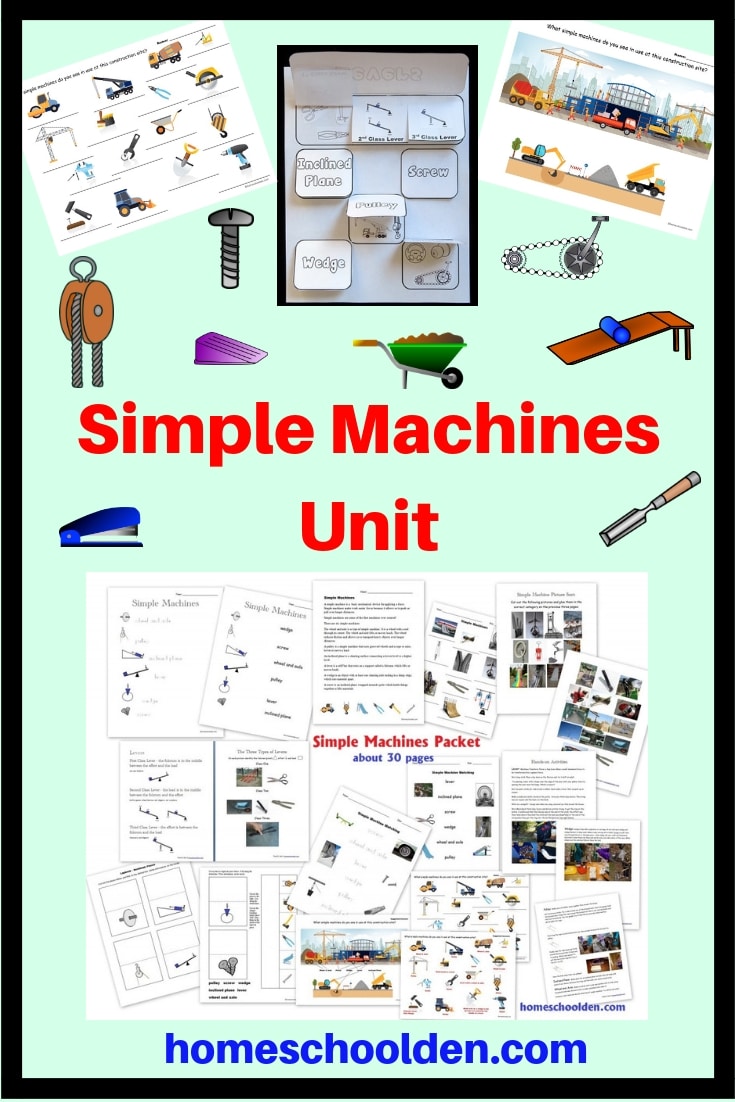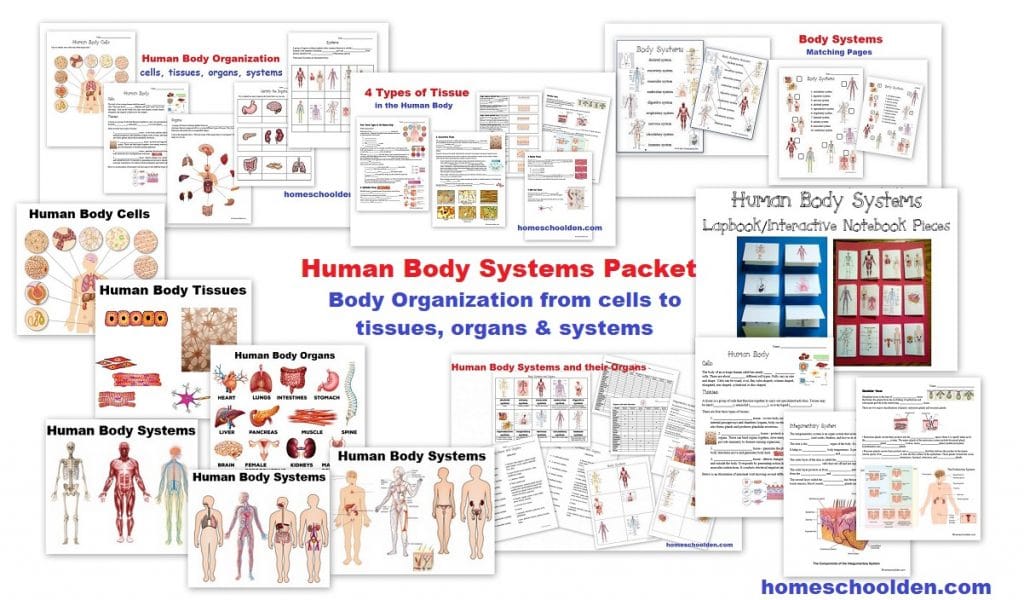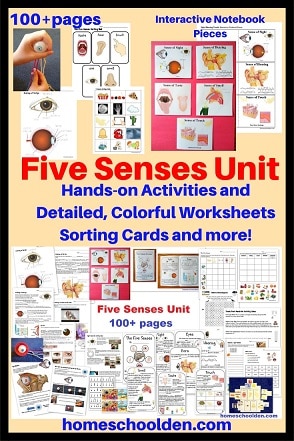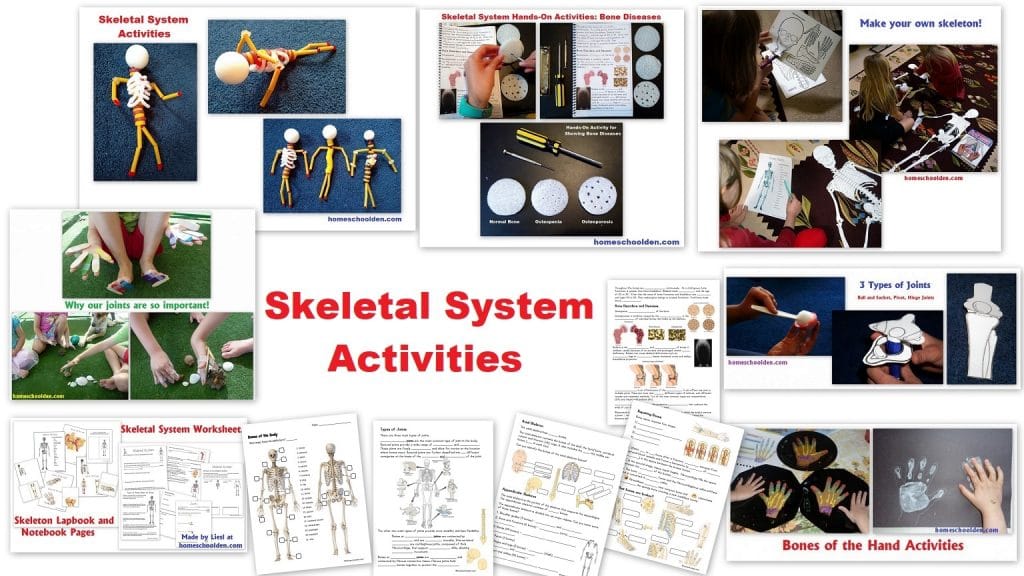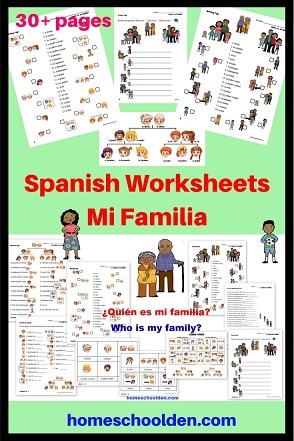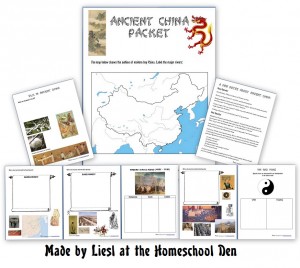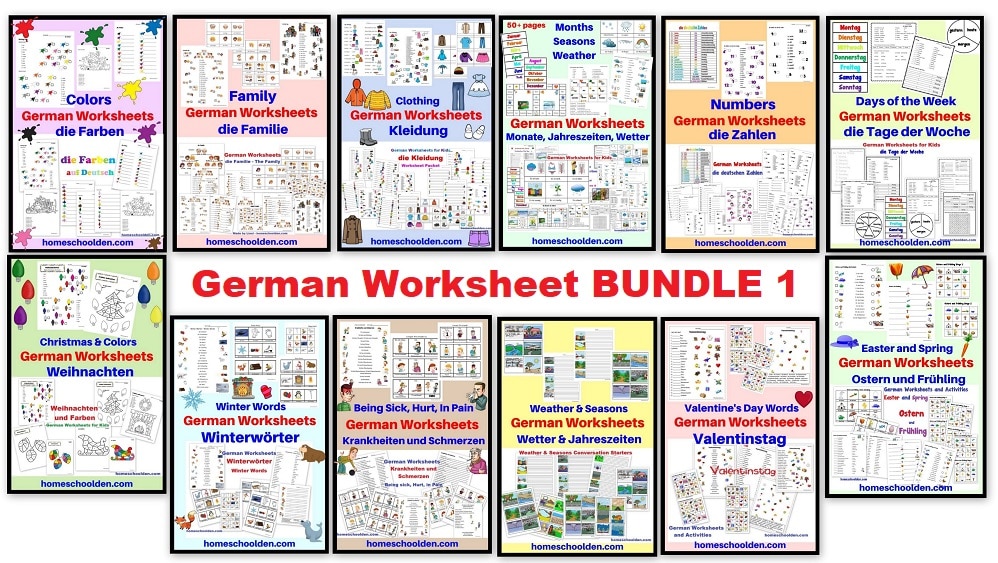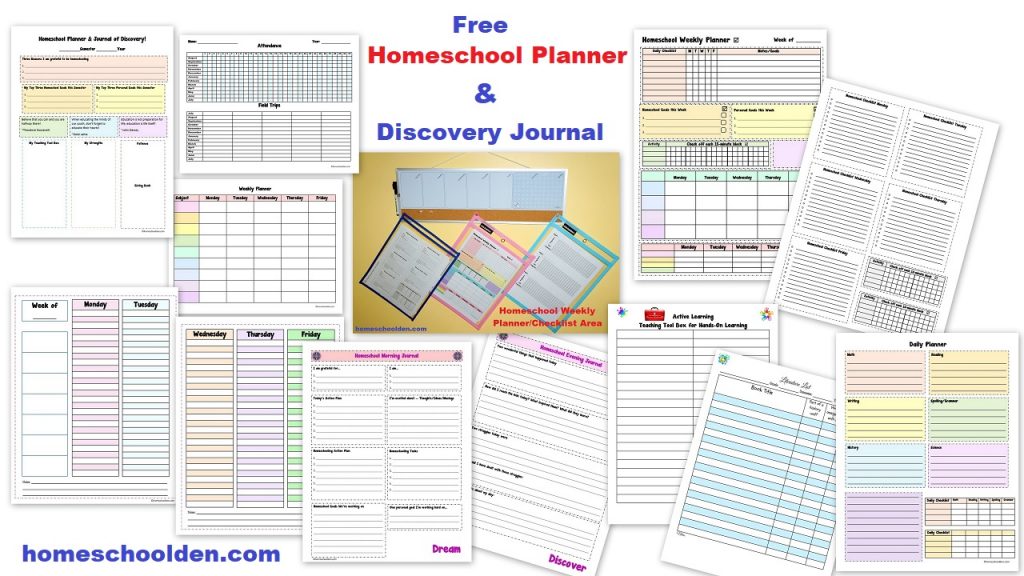We have been using a writing workshop model in our homeschool for many, many years. It has brought a lot of joy to our writing time. My kids are not at all intimidated by writing now… even high school essays!
I have a lot of posts about what a Writing Workshop looks like in our homeschool and also have a lot of posts about the various mini-lessons we used to teach the kids about some of the strategies of writing well.
Homeschool Writing Workshop Video
We started using the writing workshop model when ED was almost 5 and my older two were 7 and 9 years old. It completely transformed writing into a enjoyable time (not a battle!)
Here’s ED working on her story when she was quite little…
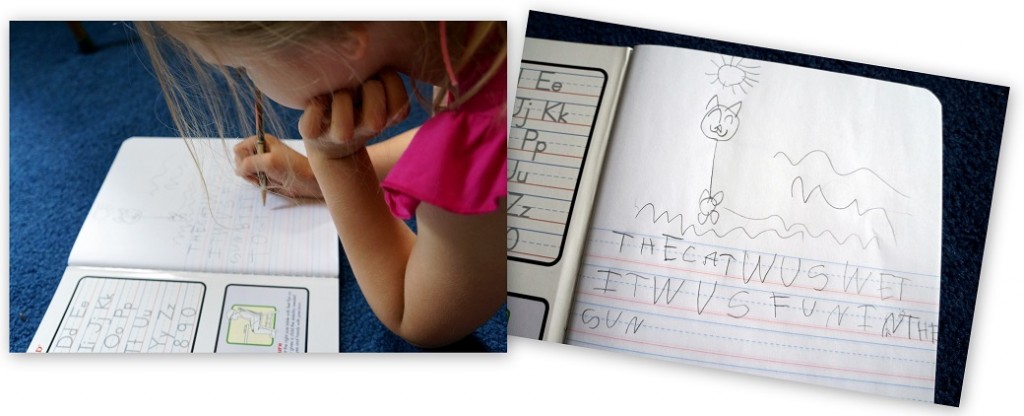
By using this model we were consistent – we practiced writing for a set time *each* day! We definitely have had a sense of teamwork with this model. Sometimes writing flows… and sometimes it doesn’t. We’ve talked about the ups and downs of writing together!
Setting up the Writing Workshop Area:
I created a set spot that had all the material we needed right at hand.
Our writing workshop consisted of four steps
- I read a book aloud.
- We did a mini-lesson about that book (perhaps talking about the mood or the voice, etc.)
- We set the timer and started writing!
- We shared at the end.
We had some pretty strict rules while we were actually writing. For one thing, I always wrote with the kids. We set the timer (at first for just 3 or 4 minutes and then we added time so eventually we were writing silently for up to 35 or 40 minutes!). No one was allowed to talk for any reason (not to ask how to spell anything, not to get the phone, not to say I’m done). I modeled that right from the start and asked them not to interrupt me as I was writing as well!
When the kids were little, I would cover the basics of writing:
- Coming up with story ideas
- Coming up with writing ideas (different writing genres)
- Characters – how to develop interesting characters, the difference between a protagonist and an antagonist
- Plot – writing a story that builds in suspense
- Show Don’t Tell – use details to really show how someone was feeling or acting (rather than writing “He was mad.”)
- Nature Journaling
- How to start a story (hooks)
- Lively verbs
- Rhyming
- Alliteration
Over time, we covered a lot of literary elements from setting, plot and characters to choosing good words, using quotation marks well and so forth.
Now that they are older, we go over some more sophisticated writing elements (similes & metaphors, the different types of writing)
and essay writing skills.
If you are interested, I have spent time putting all of our resources together in one convenient place.
Writing Workshop and Writing Resource BUNDLE
The Writing Resource BUNDLE includes over 300 pages in length and consists of 5 pdf packets:
- 1 Writing Resource Packet
- 2 Writing Prompts & Writing Paper
- 3 Creating a Writing Workshop in Your Homeschool: Mini-Lessons & Book Ideas
- 4 Writing for your Older Kids
- 5 History Portfolio Projects
- 6 Writing – Back to School Writing Pages (my daughter really enjoyed these!)
- 7 Writing a Persuasive Essay
- 8 Book Review Templates and Literary Analysis Worksheets
- 9 Short Story Analysis and Story List
This will come as a zipped file (so you may need to open it on your desktop or laptop). The zipped file will include 9 pdfs.
Writing Workshop and Writing Resource Packet BUNDLE
$4.99
Be sure to check your PayPal email address for the download link! If you have any trouble, feel free to email me! ~Liesl
More about the Writing Workshop & Writing Resource BUNDLE:
I’ve been working on putting this writing resource together for over a year! You’ll find there is A LOT of material here. Remember that this represents *years* of writing activities! You’ll pick and choose the lessons & topics to explore with your kids slowly over time! I sure hope it’s helpful!!
Recommended Ages: I began creating the Writing Resource Packets when my kids were in elementary and middle school. Recently, I added some new material for high school as well (Persuasive Essay Writing, Literary Analysis, Short Story Analysis)
If you have any questions be sure to reach out to me! ~Liesl
Writing Resource Packet 1
The Writing Resource Packet includes dozens of mini-lesson writing ideas. Your elementary and middle school kids will go from creating fascinating characters, to developing plot twists, using descriptive language and more!
The Writing Resource Packet 1 includes materials on literary techniques like
- similes, metaphors,
- idioms,
- onomatopoeia,
- point of view, and
- new material on finding expressive words to replace those boring, overused words such as good, big, interesting, a lot, etc.
Writing Resource Packet 2
In the second pdf you’ll find many of the free materials you’ll find around the blog. It’s been compiled into one pdf to make it more convenient for you. This includes journal prompts, writing tips, writing paper, biography packet, and more.
Writing Resource Packet 3
The third pdf, Creating a Writing Workshop, explains why we started using a Writing Workshop in our homeschool and how that works on a daily basis.
While you can use the Writing Resources (in packets 1 & 2) with any homeschool writing program, I wanted to explain what a Writing Workshop entails and how this framework changed writing time from tears to excitement in our homeschool. 🙂
It includes some of the children’s books that we used as mentor texts, but of course, you can substitute in any children’s literature you have on hand! 🙂
Writing Resource Packet 3 includes mini-lessons and explains what we did on a day-to-day basis. It also has a list of many of the mini-lesson topics you may want to cover with your kids over the years.
Writing Resource Packet 4 & 5
The Writing Resource BUNDLE also includes some of the outside writing resources we have found helpful as well as more information about creating Portfolio Projects to enhance your history curriculum.
Back to School Writing Activities
Some fun writing pages to get the creative juices flowing. There is a page for younger students and a couple of pages for middle school/high school students. My daughter (14) had a lot of fun with this activity at the beginning of the year!
Writing Persuasive Essays
My daughter is doing a unit on persuasive essay writing. This new unit covers the 4 types of writing; what is a persuasive essay; transitions and concessions; how to write a solid introduction for a persuasive essay; topics for writing a persuasive paragraph; topics for writing a persuasive essay.
Book Report Templates and Literary Analysis
What is Literary Analysis?
Literary analysis means taking a closer look at how the book was written. Books can teach us new skills, help us think about our own values or help us to escape from our own lives, if just for a moment.
We can use literary analysis skills to think about how the author wrote this book. What type of book did the author write? What techniques did the author use? What words did the author choose (and why?). By looking more closely at the devices authors use, we can improve our own writing.
Literary analysis can also help us to find deeper meaning in the text. The author might have hidden symbols and deeper levels of meaning than one first believes.
Younger kids often just do a quick “book report” (or talk about this orally with their parents), but older kids will need to become familiar with those terms. We started looking more closely at literary analysis terms ( metaphors, alliteration, satire, irony) when the kids were in elementary, but even in late middle school and early high school my kids needed regular review of the terms (and their meanings).
Short Story Analysis
Once my daughter had a firm understanding of all the literary terms (in the unit above), she read short stories that have more complicated plots, and use other techniques to build the characters and develop the story lines.
In this unit we are going into more depth about the type of conflict and looking more closely at the characters (is there a literary foil, for example).
I
Practical Pointers for Working with a Reluctant Writer (or any writer!)
 How do you help a child who throws his hands up and declares he can’t write, refuses to write, only writes “I suck at writing” or prose of that sort? Well, it has been a long hard journey for my son (10), but things have started to turn around this year and I wanted to share how we’ve made it over that hump… most of the time.
How do you help a child who throws his hands up and declares he can’t write, refuses to write, only writes “I suck at writing” or prose of that sort? Well, it has been a long hard journey for my son (10), but things have started to turn around this year and I wanted to share how we’ve made it over that hump… most of the time.
*Have a space where writing happens. I go into a lot of detail about the space we created for writing (and I just ordered a new book display shelf to add into that area). I have found that just by gathering in the same corner day after day has made a difference in the atmosphere around writing. The only thing we do in this area is writing workshop (and writing related things like spelling/grammar). I don’t know if you have the space to do this, but I think this has made a big difference for my reluctant writer. (My other two are happy to write anytime, anywhere.)
*Write every day. I think one of the reasons writing has gone so well for us this year is that we write every day, M-F (or as close to that as we can). It is (mentally) written in stone. I know we won’t improve as writers unless we have the time to put pencil to paper!
*The Writing Workshop is Already a Success! From the very moment we started our writing workshop I acted as if the workshop was already a success. My attitude was positive and excited… and I was ready to go with my writing notebook as well! Create a sense that we are on this writing journey together.
*Create rituals and routines for the writing workshop. This will be different for every home or classroom, but for us it looks something like this:
- Changing the date stamp and passing it around (I do this as all the kids gather together.)
- Start the writing workshop together. I’ve been very careful not to ever say, “you need to go write for 10 minutes…” This is something we do as a group (the 4 of us, that is!)
- Read something together. When we first started with the writing workshop last fall, I selected good (fairly short) books. I would read it aloud and we would talk about some aspect. Perhaps we would carefully examine how the author started the book or his use of descriptive words. Perhaps it was a book about family memories. We might talk about our own memories. Perhaps the book was set up in a certain style (repeating a line or rhyming or perhaps it was an ABC book). I talked a bit more about mini-lessons in another post (and have a whole slew of posts “in my head” and in my writing journal yet to write!)
- Use a timer — At first this was key for my reluctant writer. We set it for 10 minutes and even if he just sat there thinking, that was okay. He knew he could do anything for just 10 minutes. Now as the months have gone by, we’ve added more writing time.
- Share: After we all finish writing (sometimes someone writes for considerably longer than the timer), we gather together again and I ask if anyone wants to share. Often they do. Sometimes they want me to read their work aloud. Sometimes they don’t share. Whatever they choose is fine.
- Re-read your own work. I encourage the kids to go back and read their own work. It gives them a sense of growth. I’ve often heard LD and DD rush back to their journals to show ED something. “I wrote this when I was little,” they’ll say. They can be proud of their work. They might begin to see their mistakes and correct them. At this point we haven’t “published” much work… But the goal is to eventually pick some pieces to polish up and publish in some way. To be honest this isn’t a big goal this semester.
*Be a model. I think it was very, very important for my son to see me writing too. While most of the time, we just set off to write and the kids come up with their own ideas, sometimes I suggest they write in a certain style, think of a great memory, focus on the opening of their story or whatever. At those times I always do that exercise to share with the kids. Sometimes I free write and share with them. And sometimes I write blog posts or jot down ideas that come to mind. Occasionally I have used that time to write a letter to family/friends. I share that process with the kids too.
*Write together. Okay, so this is practically the same point as the one above, but I wanted to point out that having kids of varied abilities writing together has really helped my reluctant writer. When we all gather together and start writing at the same time each one acts as a role model in his/her own way. My oldest might share a sophisticated plot line. My daughter might have a terrific opening in her writing piece. My youngest has taught my other two that you are a writer from the moment you pick up a pencil! My youngest has demonstrated perseverance or has modeled “chapter” writing and writing a story over a number of days.
*Support one another. I’ve found that this has happened naturally over the months and now happens throughout the writing workshop. Sometimes the kids will say to one another, “Come listen to this story.” And laugh as they share old stories they have writtenDD started a series of “story starters” that she said anyone could use! LD was the first to point out that ED was now consistently leaving a space between her words. We’ve laughed together and commiserated when the writing didn’t go well that day.
*Try to cut any negative comments short: Be sympathetic but firm. Negative comments are not welcome in the writing workshop. I handle this differently on different days. Sometimes I just quietly say, “Shh… I’m trying to write.” Sometimes I say, “It’s so challenging to be a writer! I bet you have way too many thoughts racing through your head.” Sometimes I say, “No negative comments, please.” Sometimes I just put up my hand or give the “eye” and return to my writing. It really depends, but the key has been to make it clear that the expectation of our writing workshop is to be respectful to others.
*When they are stuck: Often times I just acknowledge how hard it is to be a writer and leave it at that. I might say “I know it can be tough to decide what to write, but I know you’re trying hard.” I can’t tell you how many times I have said, “Writers go through that all the time…” or something of that nature. I acknowledge that writing is a process. Sometimes we’re in the writing zone and sometimes we’re not.
Sometimes I have them leaf through their notebook to look at the other pieces they’ve written to see if anything comes to mind. (At any rate, that shows them that they have written successfully in the past.)
Sometimes I hand them the list “Now What? Feeling Stuck Today” page of ideas.
Occasionally, I pull out our thick notebook of writing prompts. These are cute story starters and other things I’ve printed out. To be honest, the more we write the less practical these are, but there still are those days when they find it useful… and it’ll bring something to mind or help them think of their own story.
Sometimes I hand them the list of writing genres and say, maybe today you’d like to write an animal fact card or write a letter… or here are other types of writing. Does anything come to mind?
*How do you spell? Since I get this question so often, I wanted to address how I handle this interruption. I tried to emphasize from the beginning to respect each other’s time as writers. That means being silent during writing time. From the get-go, I made it clear that the kids were to try their best to spell a troublesome word on their own and that they could come back later to correct the spelling. This year ED (5) joined us during our writing workshop and I modeled sounding it out. Then I pointed out to the others quietly (privately) afterward, “Did you notice how that made it difficult to write and concentrate? She’ll learn, though, right?”
I often say, “Do your best because I am busy writing too and it’s hard to keep my train of thought if you interrupt me.” Still, that question come up again and again. Sometimes I help. Sometimes I insist they sound it down. Often I say, “I’m not your human dictionary and you’re interrupting my writing time. Please just do your best on your own.” Then I purposefully pick up my pencil, bury my head in my writing notebook and start scribbling fast and furious just to make my point. I can say that this issue has gotten better over time, but this is still a work in progress!
We work on spelling separate to our Writing Workshop time. We use and LOVE LOVE LOVE the All About Spelling Program (affiliate link) program. 
*Persevere. Pick yourself up, dust yourself off and try hard day after day! I jotted this down in my journal the other day and think this sums up my hopes and goals for my reluctant writer:
There are thousands even millions who are better, stronger, bigger, faster, stronger and more talented, but they never picked themselves up, got their feet off the ground to try to meet their goal.
That’s about it for today!
See you again soon here or over at our Homeschool Den Facebook Page! Don’t forget to Subscribe to our Homeschool Den Newsletter. You might also want to check out some of our resources pages above (such as our Science, Language Arts, or History Units Resource Pages) which have links to dozens of posts. You might want to join our free Homeschool Den Chat Facebook group. Don’t forget to check out Our Store as well. ~Liesl
Again, if you are interested in joining our Homeschool Den Newsletter, feel free to subscribe here. It’s a great way to hear about our latest packets and to learn about many of the hundreds of printables & other materials we have tucked away on the blog!
Happy Homeschooling! ~Liesl
Here are a few related posts that might be of interest:
If you are interested in how we use Literature Textbooks in Our Homeschool, you can visit this post. Obviously that ties closely to our Writing Workshop!! 🙂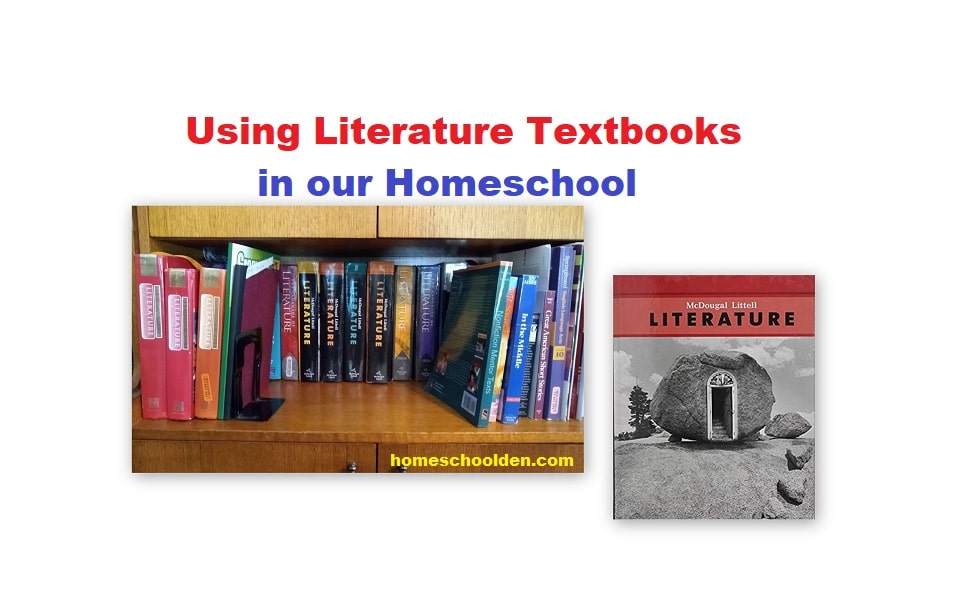
Homeschool Reading List for Grades 4-6
Homeschool Reading List for Grades 7-9
In this post I shared some of the literature that is on our reading list for grades 7 to 9. These are well-known classics. We’re pretty flexible in that I won’t make them finish a book they “hate.” Life’s too short and their are too many amazing books!
Let me add that our list changes as the kids’ interest change and as we cover different things in our homeschool.
